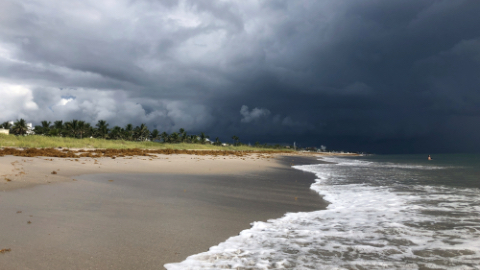
A Colorado State University team of researchers has received a $194,000 grant from the National Science Foundation’s Rapid Response Program (RAPID) to design a self-reliant, local, resilient electric system that can better withstand a Category 5 hurricane.
The multi-disciplinary team, led by Department of Electrical and Computer Engineering Professor Sid Suryanarayanan, is working with a combination of sustainable electric grids, systems engineering, and behavioral psychology. The overall goal is a solution that provides uninterrupted or minimally interrupted electric supply to a large portion of the population.
“Over one year, we intend to achieve a framework for targeted design of microgrids for the city of Tallahassee,” said Suryanarayanan. “The target, in this case, is increasing resiliency for a hurricane-prone region.”
In 2018, Hurricane Michael destroyed 90% of the city of Tallahassee’s electric power, affecting 1.2 million people in the southeastern United States. The team will partner with Tallahassee city officials for access to the city’s emergency preparedness plans and utilities and infrastructure. An improved plan – to be delivered at the project’s conclusion – is expected to create a generalized approach that’s extendable to other communities.
Team member Pat Aloise-Young, from the Department of Psychology, has expertise in the design of programs that promote lasting behavioral change, particularly in the area of energy conservation. Ultimately, she states, successful implementation of a plan depends on understanding identified needs versus what constituents are willing to trade-off.
“I think engineers are coming to realize that you can design all the technology you want, but it’s not going to achieve the benefits you hoped for if you don’t have stakeholder buy-in,” Aloise-Young said.
Another team member, Bo Marzolf from the Department of Systems Engineering, has expertise in systems-level emergency management practices. Marzolf has observed the complexities found in post-hurricane emergency response, including medical systems, critical infrastructure, utilities, and even military intervention in extreme situations.
“I will work to ensure we have a system here that balances not just human factors and engineering, but also how it fits into the emergency response system writ large,” Marzolf said.
